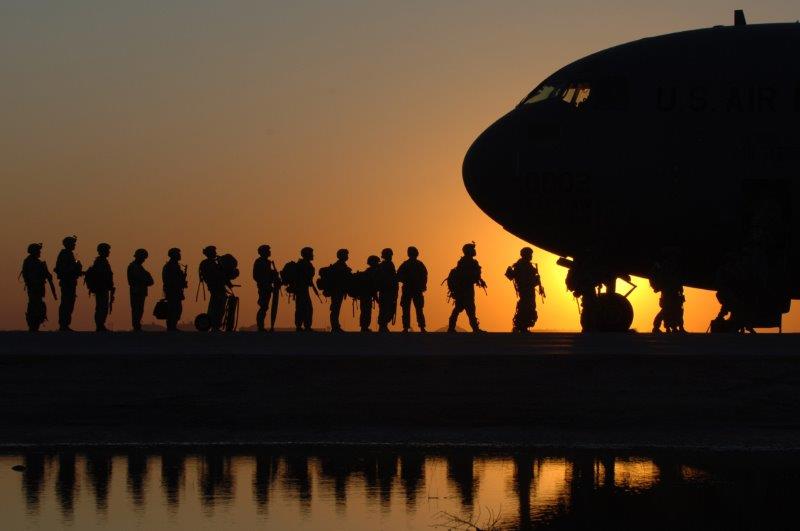Before his legendary defeat at Waterloo, Napoleon Bonaparte had spent over a decade conquering much of Europe, victorious in battle after battle. His brilliant campaigns allowed him to build an empire that made France the dominant power on the continent. Let's examine how the military genius of Napoleon made him seem nearly invincible for many years as he was Napoleon victorious across Europe's battlefields.
Key Takeaways
- Napoleon was one of history's greatest military commanders, winning the vast majority of battles he fought. A victory at Waterloo could have prolonged his empire.
- If Napoleon had won at Waterloo, he likely would have pushed through progressive reforms like meritocracy and religious freedom across Europe.
- Britain and other powers opposed Napoleon not just militarily but also ideologically, as they feared the spread of revolutionary values.
- Napoleon's disastrous 1812 invasion of Russia was the true turning point that put his empire on the defensive. An earlier peace with Russia could have changed his fortunes.
- Historians argue Waterloo did not need to be fought, as Napoleon was receptive to negotiating peace in 1815. But the Allies were adamant about destroying him.
Napoleon's Military Career Before Waterloo

Early Life and Rise to Power
Napoleon Bonaparte was born on August 15, 1769 in the city of Ajaccio on the Mediterranean island of Corsica. His parents Carlo and Letizia Bonaparte were members of the minor Corsican nobility. When Napoleon was 9 years old, he was able to enter a French military school in Brienne-le-Château despite not fluently speaking French yet.
As a youth, Napoleon admired the philosophies of the Enlightenment and was inspired by the heroism of the French Revolution. In 1785 at age 16, Napoleon graduated from the elite École Militaire in Paris and was commissioned as an artillery officer. He became an ardent supporter of the Jacobin faction, which espoused radical democratic ideals.
Napoleon made his name in 1793 by recapturing the strategic port city of Toulon from royalist rebels for the revolutionary government. Just 24 years old, he was promoted to brigadier general for this accomplishment. The next year, he defended the National Convention from angry mobs and became a national hero.
When the Directory government took control of France in 1795, Napoleon was instrumental in suppressing counter-revolutionary uprisings. His profile continued to rise. In 1799, Napoleon took part in the "Coup of 18-19 Brumaire" that dissolved the Directory. Napoleon then had himself installed as First Consul, giving him dictatorial powers over France at just age 30.
Napoleon's bold leadership style and innovative military strategies provide invaluable lessons that remain applicable today, as explored in more depth in the article "Napoleon Leadership Lessons: Fearless and Brilliant!"
Successes Across Europe
Between 1800 and 1809, Napoleon led French armies to overwhelm the continent and establish a vast empire under his control. Some highlights include:
- 1800 - At the Battle of Marengo in Italy, Napoleon drove the Austrians out of the north of the country and secured French domination of the peninsula.
- 1802 - Napoleon retook revolutionary France's Caribbean colony of Saint-Domingue (now Haiti) from Toussaint Louverture, re-establishing French control of sugar production there.
- 1805 - At Austerlitz in what is now the Czech Republic, Napoleon decisively defeated a combined Russo-Austrian force. This victory shattered the Third Coalition against France.
- 1806 - Napoleon crushed the Prussians at twin battles at Jena and Auerstedt, letting him occupy Berlin and dissolve the centuries-old Holy Roman Empire.
- 1807 - Napoleon defeated the Russians at Friedland, leading to the Treaty of Tilsit in which Russia became his ally. France now dominated Europe from Spain to Poland.
- 1809 - Napoleon again defeated Austrian forces at the massive Battle of Wagram near Vienna. The resulting Treaty of Schönbrunn forced Austria into an alliance with France.
After his victory at Austerlitz in 1805, Napoleon dissolved the Holy Roman Empire and reorganized German states under the Confederation of the Rhine, with French allies installed as rulers. This brought a centuries-old empire to an end.
Following his defeat of Prussia in 1806-1807, Napoleon not only occupied Berlin but also sought to dominate Prussian education and culture. He founded new elite French-style schools and encouraged adoption of French language and legal reforms. This "conference of civilization" policy aimed to align the defeated kingdom with France.
| Battle | Year | Opposing Forces | Result |
|---|---|---|---|
| Marengo | 1800 | Austria | Decisive French victory |
| Austerlitz | 1805 | Russia & Austria | Crushing French victory |
| Jena-Auerstedt | 1806 | Prussia | Major French victory |
| Friedland | 1807 | Russia | French victory |
| Wagram | 1809 | Austria | French victory |
In this decade of conquests from 1800-1809, Napoleon made himself master of Europe through his military genius, crippling rivals like Austria and Prussia. His victories allowed him to install allies and relatives as rulers of territories like Spain, Italy, and Poland. Napoleon had built a continental empire of unprecedented size under the banner of French military supremacy.
Disastrous Invasion of Russia
After a breakdown in diplomatic relations, Napoleon assembled the largest army Europe had ever seen - 600,000 men - and invaded Russia in 1812. He initially won battles like Borodino but was eventually forced to make a disastrous winter retreat from Moscow, losing over 400,000 soldiers.
This catastrophic invasion drained French manpower and resources and inspired renewed alliance against Napoleon by Russia, Britain, Prussia, and Austria. But Napoleon continued to win victories from 1813 to 1814, until finally Paris fell to the Allies and Napoleon agreed to exile on the island of Elba.
Napoleon Bonaparte and Preparations for Waterloo
After just 10 months in exile, Napoleon escaped Elba and returned to France, where he was welcomed as emperor once again. But the Allied powers immediately made plans to defeat him militarily.

Napoleon's Return from Exile
On March 1, 1815, Napoleon landed in southern France with a cohort of soldiers and began marching north to Paris. The French king Louis XVIII dispatched armies to stop him, but they defected to Napoleon en masse as he proceeded through the countryside. Napoleon entered Paris on March 20 to popular acclaim.
In a conciliatory tone, Napoleon declared: "From now on the happiness and the consolidation of France shall be the object of all my thoughts." He promised peace and instituted liberal reforms like freedom of speech. But the Allied powers were unmoved.
Allied Forces Gather Against Napoleon
At the Congress of Vienna, the Seventh Coalition was organized to defeat Napoleon permanently. It included the United Kingdom, Russia, Austria, and Prussia. Napoleon decided his best option was to attack before they could all converge on France.
He set out to quickly defeat the Anglo-Dutch and Prussian armies first, before the massive forces of Russia and Austria could arrive. Napoleon marshalled 124,000 troops for the campaign into what is now Belgium. Opposing him, the Duke of Wellington commanded 68,000 British and Dutch soldiers, with the Prussians nearby.
The Battle of Waterloo 1815
On June 16, 1815, Napoleon attacked the Prussians under Field Marshal Blucher at Ligny, while detachments of the two armies clashed at Quatre Bras. Two days later, the decisive Battle of Waterloo would determine the fate of Europe.

Opening Moves
On the rain-soaked morning of June 18, Napoleon sent his forces against Wellington's defensive position near Waterloo. Repeated infantry and cavalry assaults failed to break the British lines. By late afternoon, the Prussians began arriving to reinforce Wellington.
Critical Errors by Napoleon
Napoleon made several uncharacteristic mistakes at Waterloo that undermined his chances for victory:
- Attacking later than planned, losing any chance of surprise
- Poor coordination in the split of his forces
- Committing his infantry in dense columns vulnerable to artillery
- Delaying his final Guard offensive until too late
With French forces in disarray from these mistakes, Wellington counterattacked in the evening, routing Napoleon's army from the field.
Wellington Secures Victory
The British and Prussians inflicted 25,000 casualties at Waterloo, destroying Napoleon's veteran army. Napoleon himself fled back to Paris. On June 22nd, he abdicated in favor of his son, ending the Hundred Days period of his return to power. Losing at Waterloo meant the end of his dreams of empire.
| Force | Soldiers | Casualties |
|---|---|---|
| French | 68,000 | 25,000 |
| British | 68,000 | 15,000 |
| Prussian | 48,000 | 7,000 |
"My power depends on my glory, and my glory on my victories." -Napoleon Bonaparte
But what if Napoleon had instead emerged victorious at Waterloo? How might the "near-run thing" of history have turned in his favor? Let's explore an alternate timeline where Napoleon's generals follow his orders perfectly, the weather favors the French, and British mistakes allow Napoleon's genius to prevail.
Napoleon's Continued Reign
If Napoleon had won at Waterloo, the Seventh Coalition would likely have dissolved. What might have happened in France and across Europe if Napoleon had continued his rule?

Potential Domestic Reforms
Napoleon may have been emboldened to push through progressive reforms like:
- Meritocracy in government and military positions
- Religious freedom and rights for Jews
- Educational systems based on ability
- Legal reforms like the Napoleonic Code applied across Europe
With the winding down of war, Napoleon could have focused on peaceful domestic improvements to consolidate his dynasty.
Different Paths for European Powers
Without being defeated and exiled, Napoleon would have exerted French influence across the continent:
- Ending feudalism and serfdom more broadly
- Forcing Austria, Prussia, Russia to make concessions
- Potentially supporting liberal revolutions against monarchies
- Keeping more unified European states like Italy divided
This likely would have curtailed the rise of conservatism across Europe in the 19th century.
Did You Know: During his Egyptian campaign in 1798, Napoleon's troops discovered the Rosetta Stone, an ancient stele inscribed with a decree issued in Memphis, Egypt in 196 BC. The inscription on the Rosetta Stone was written in three scripts - hieroglyphic, demotic, and Greek. Because Greek could still be read in Napoleon's time, the Rosetta Stone provided the key to deciphering the long-lost Egyptian hieroglyphs, advancing modern understanding of ancient Egyptian language and writing.
Lasting Global Impacts
Beyond Europe, a Napoleonic victory could also have impacted:
- Discouraging monarchist restoration in Latin America
- Accelerating the end of the slave trade and slavery
- Checking British colonial expansion in Asia and Africa
- Limiting the growth of the United States per the Treaty of Tilsit
The balance of power would have shifted in favor of France and against Britain, with ramifications felt for decades after Napoleon's lifetime.
Why Waterloo Didn't Need to Be Fought
Many historians argue that the Battle of Waterloo and Napoleon's defeat were far from inevitable. The seeds of Napoleon's downfall were sown much earlier.

Napoleon's Promise of Peace
Upon returning to power in 1815, Napoleon did not immediately prepare for war. He expressed willingness to negotiate:
"After presenting the spectacle of great campaigns to the world, from now on it will be more pleasant to know no other rivalry than that of the benefits of peace, of no other struggle than the holy conflict of the happiness of peoples." -Napoleon
But the Allies were intent on removing Napoleon completely.
Motivations of the Allies
The Allies opposed Napoleon for reasons beyond just his past conquests:
- Feared the spread of revolutionary ideals
- Wanted to restore monarchist order
- Prussia and Britain sought to expand colonial holdings
- Saw overturning French gains as vital to balance of power
These motivations made the Seventh Coalition unwilling to accept Napoleon diplomatically.
Given all this, historians note the Allies could have allowed Napoleon to rule France peacefully. Instead they foolishly pursued the devastating war of 1815, resetting France's political development for decades. Napoleon's legacy rests on his earlier military triumphs, not the pointless defeat at Waterloo.
Conclusion: Assessing Napoleon's Legacy
Napoleon was undeniably one of history's greatest conquerors. His Napoleonic Code and other reforms still influence France and Europe today. But his defeats in Russia and at Waterloo cut his empire short.
What if Napoleon had prevailed at Waterloo and continued modernizing Europe as emperor for a few more years before his death? He likely would have extinguished feudalism sooner, advanced meritocracy, spurred revolutions against monarchy, and slashed the power of his continental rivals.
The Battle of Waterloo was a near-run thing that could have easily turned out differently. But even a victory there would only have delayed Napoleon's ultimate defeat, given the Allies' determination and massive advantages in manpower. Napoleon's tragic decision to invade Russia had already placed his empire on the path to destruction.
Still, winning at Waterloo could have changed history tremendously - allowing Napoleon to implement many overdue European reforms, guiding France towards a liberal political system, and preventing the rise of repressive monarchies. The fateful battle made a difference, even if Napoleon's days were already numbered. Two hundred years later, we can only speculate on what grand vision Napoleon might have achieved had his empire lasted just a little while longer.
Frequently Asked Questions
Q: Where was Napoleon born?
A: Napoleon Bonaparte was born on the Mediterranean island of Corsica in 1769, shortly before France purchased the territory from the Italian city-state of Genoa. He was not born in mainland France.
Q: How did Napoleon rise to power during the French Revolution?
A: Napoleon supported the anti-monarchical Jacobin faction during the turbulent years of the French Revolution. His defense of the port of Toulon for the revolutionaries earned him promotions and fame. In 1799, Napoleon took part in a coup overthrowing the Directory government and was installed as First Consul, giving him dictatorial powers over France.
Q: What were Napoleon's major military accomplishments as emperor?
A: Napoleon led French armies to dominate most of Europe between 1800 and 1809 through victories in the Napoleonic Wars against Austria, Prussia, Russia and other powers at famous battles like Austerlitz, Jena-Auerstedt, and Friedland. This allowed him to conquer or control most of the continent.
Q: How and why did Napoleon's invasion of Russia fail?
A: In 1812, Napoleon led 600,000 soldiers from the French empire into Russia, winning the Battle of Borodino but eventually having to retreat disastrously from Moscow. This catastrophic invasion cost 400,000 lives and encouraged renewed alliances against Napoleon. It was the turning point that put his empire on the defensive.
Q: What reforms did Napoleon institute within France as ruler?
A: Domestically, Napoleon introduced reforms like the Napoleonic Code of law, establishment of the Bank of France, and an educational system based on merit. He also constructed much of the infrastructure of Paris. These changes modernized France and inspired reforms elsewhere in Europe.
Q: How might history have been different if Napoleon won at Waterloo?
A: If Napoleon had won at Waterloo, he could have delayed his final defeat and continued pursuing progressive policies like ending feudalism, spreading religious tolerance, reforming monarchies, and consolidating his dynasty and influence across Europe. His victory could have set back repressive conservatism for decades.











